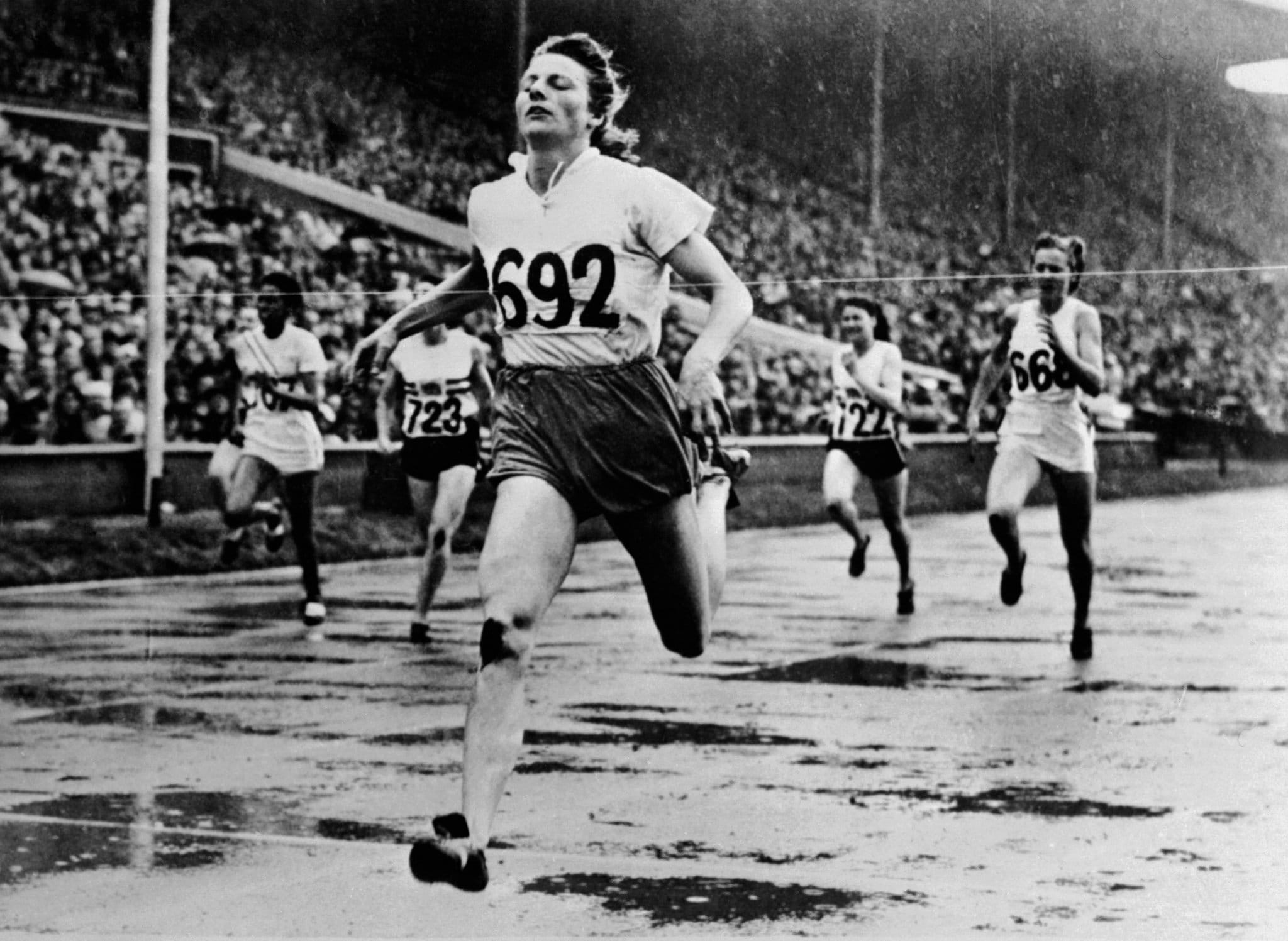Journey back to ancient Greece, the birthplace of the legendary Olympic Games. These events weren’t merely athletic competitions; they were grand celebrations of human endurance, skill, and devotion to the gods. Join us as we uncover the fascinating origins of the Olympics, meet the athletes who made history, and explore why these games have captivated the world for centuries.
History of Olympics
Imagine ancient Greece, a land of myths and legends. Every four years, a sacred festival unfolded in Olympia, a sanctuary dedicated to Zeus, the king of the gods. This wasn’t just any festival; it was the Olympic Games—a spectacle of athletic competition, religious ceremonies, and cultural exchange. People from various city-states would set aside their differences, uniting under the banner of sport and shared heritage.
Centuries later, in 1896, a French visionary named Pierre de Coubertin rekindled the Olympic flame. Inspired by the ancient Games, he envisioned a world united through sports, promoting peace and understanding. And so, the modern Olympic Games were born.
The Games have evolved significantly since their revival. The Summer Olympics were joined by the Winter Olympics, showcasing snow and ice sports. The Paralympic Games provided a platform for athletes with disabilities to demonstrate their remarkable abilities. And for younger generations, the Youth Olympics emerged, nurturing the Olympic spirit in budding athletes.
However, the journey hasn’t been without its hurdles. The inclusion of professional athletes in the 1980s sparked debates about amateurism and the spirit of the Games. Commercialization through sponsorships and media deals raised concerns about financial influence and potential exploitation.
Political tensions, a recurring theme in human history, have also cast a shadow on the Olympics. Boycotts by nations protesting political disagreements highlighted the complexities of international relations on the world stage. The recent COVID-19 pandemic, which forced the postponement of the 2020 Tokyo Olympics, underscored the Games’ vulnerability to global events.
Despite these challenges, the Olympics endure as a symbol of unity and human potential. They stand as a testament to our collective desire to push boundaries, achieve greatness, and celebrate our shared humanity. Whether cheering for national pride or witnessing record-breaking feats, the Games foster a sense of connection that transcends borders and differences.
As the world evolves, the future of the Olympics remains unwritten. Yet, one thing remains certain: the Olympic flame, a beacon of hope and inspiration, will continue to illuminate the paths of athletes and dreamers for generations to come.
What is the history behind the Olympics?
The ancient Greeks held the Olympic Games in high regard, considering them much more than just athletic contests. These gatherings were grand festivals in honor of Zeus, the ruler of the Greek pantheon. People from all corners of the ancient world converged not only to witness athletic prowess but also to partake in a shared cultural and religious experience. It was a celebration of their shared identity.
However, this era of harmony eventually faced disruption. The Roman Empire’s rise to power brought about a shift in focus. While the Romans allowed the Games to continue, they gradually lost their religious significance and became more about spectacle and entertainment. This shift marked a decline in the Games’ original spirit and values.
In 393 CE, Emperor Theodosius I, a devout Christian, officially abolished the Olympic Games. This act was part of a broader effort to suppress pagan traditions and solidify Christianity’s dominance within the empire. The ancient Olympics, once a symbol of Greek unity and divine reverence, faded into the annals of history.
However, the spirit of the Games, much like a dormant ember, held the potential for reignition. During the 19th century, a period marked by renewed interest in classical antiquity, a French baron named Pierre de Coubertin emerged as a champion of the Olympic ideal. He envisioned a world united through sports, where nations could engage in peaceful competition and celebrate shared human values.
In 1896, Athens, the birthplace of the ancient Games, hosted the inaugural modern Olympic Games. While a modest affair compared to the global spectacle of today, with only 280 athletes from 12 nations participating, it marked the rebirth of a powerful symbol. Coubertin’s vision had taken root, rekindling the Olympic flame for a new era.
Who Founded the Olympics and Why?
The modern Olympic Games, a spectacle that unites athletes and spectators worldwide, owe their existence to the vision of one man: Pierre de Coubertin. This French historian, deeply fascinated by the ancient Olympic Games, believed in their power to transcend national boundaries and foster harmony.
Coubertin recognized the unifying potential of sports. The ancient Greeks, despite their frequent conflicts, set aside their differences to participate in these Games, demonstrating the power of shared athletic pursuits. These Games, held in Olympia starting around 776 BC, weren’t merely athletic events; they were religious festivals honoring Zeus, the king of the gods. Chariot races, wrestling matches, and the intense pankration, a combination of boxing and wrestling, captivated audiences. Yet, the Games’ significance extended far beyond entertainment or competition; they represented a sacred truce and a testament to their shared heritage.
However, the Roman conquest of Greece brought about a decline in the Games’ significance. They lost their religious and cultural importance, becoming increasingly politicized. In 393 AD, Emperor Theodosius I, a Christian, banned all pagan festivals, including the Olympics, marking an end to their ancient legacy.
Over 1,500 years later, Coubertin sought to revive the Games, believing in their potential to promote peace and understanding in an increasingly fractured world. He envisioned athletes from all nations competing in a spirit of sportsmanship, embodying the ideals of excellence, respect, and friendship.
In 1894, Coubertin established the International Olympic Committee (IOC), the governing body responsible for organizing and managing the modern Olympic Games. Two years later, his vision came to fruition with the first modern Olympics in Athens, Greece. This event marked the rebirth of a powerful symbol, igniting a global tradition that continues to inspire and captivate the world.
Who made the Olympics and why?
The ancient Olympics, a testament to the Greeks’ reverence for athleticism and their gods, provide a glimpse into a world where sports and spirituality intertwined. Held every four years in Olympia, these Games weren’t merely competitions; they were grand festivals honoring Zeus, the king of the gods, a testament to their belief in the interconnectedness of physical prowess and divine favor.
However, participation in these ancient Games differed starkly from the inclusivity of the modern Olympics. Only freeborn Greek men were allowed to compete, reflecting the social hierarchies and cultural norms of the time. Women were excluded, highlighting the disparities that existed in ancient societies.
The Roman Empire’s rise to power brought about a shift in the Games’ dynamics. While they continued under Roman rule, their importance diminished. They lost their religious significance and became more intertwined with politics and entertainment. This shift ultimately led to their decline, culminating in their abolishment in 393 AD by Emperor Theodosius I, who sought to consolidate Christianity’s influence.
It was during the 19th century, a period marked by a resurgence of interest in classical culture, that Pierre de Coubertin, a French historian, recognized the unifying potential of reviving the Olympic Games. He envisioned a world where nations could set aside their differences and engage in friendly competition, promoting peace and understanding through sports.
The first modern Olympic Games, held in Athens in 1896, marked the realization of Coubertin’s vision. While initially a modest event compared to the global spectacle of today, it planted the seeds for a tradition that continues to evolve and inspire. However, it’s worth noting that some historians suggest that Coubertin’s motivations may have been complex, possibly influenced by the nationalistic sentiments of his time. This complexity serves as a reminder that even events with noble goals often have intricate origins.
Key Takeaways:
- The ancient Olympics were more than athletic competitions; they held deep religious significance as festivals honoring Zeus.
- Participation in these ancient Games was restricted to freeborn male citizens of Greece, reflecting societal norms of the time.
- The Roman Empire’s rise and the spread of Christianity contributed to the decline and eventual cancellation of the ancient Games.
- Pierre de Coubertin is credited with reviving the Olympics in the modern era, although his motivations might have been multifaceted.
- The first modern Olympics in Athens in 1896 marked a turning point, setting the stage for the Games’ evolution into the global event we know today.
Further Exploration:
- Delve deeper into the debate surrounding Coubertin’s motivations for reviving the Olympics.
- Research the evolution of the Olympics from their ancient origins to their modern incarnation, examining the changes in sports, participation, and overall significance.
- Investigate the impact of the Olympics on international relations and cultural exchange, analyzing both their unifying potential and the challenges they face.
What do the 5 rings of Olympics mean?
The five intertwined rings of the Olympic symbol represent more than just a sporting event; they embody the spirit of unity and global camaraderie that defines the Games. Each ring represents a continent—Africa, Asia, Europe, the Americas, and Oceania—serving as a visual reminder of the interconnectedness of our world through sports.
The interlocking design of the rings further emphasizes this message of unity. They are not merely separate entities; they are intertwined, symbolizing the harmonious convergence of nations and cultures during the Olympic Games. It’s a powerful representation of how sport can transcend geographical boundaries and foster a sense of shared human experience.
The choice of colors—blue, yellow, black, green, and red—was also deliberate. These colors, found in the flags of almost every nation worldwide, emphasize the universal appeal of the Olympics. The rings are a visual testament to the fact that the Games welcome athletes and spectators from all walks of life, regardless of their background or nationality.
Pierre de Coubertin, the visionary behind the modern Olympic Games, conceived the Olympic rings, seeking a symbol that captured both the global scope and the inclusive spirit of the Games. He believed in the power of sports to bridge divides and foster understanding, and the rings perfectly encapsulate this vision.
The rings’ impact transcends even the Olympic Games themselves. They inspired the Paralympic Games’ symbol, the Agitos—three interlocking crescents representing the body, mind, and spirit of athletes with disabilities. This connection highlights how the values of unity, perseverance, and the pursuit of excellence extend to all athletes, regardless of physical ability.
The Olympic rings are more than a mere logo; they are a powerful emblem of unity, sportsmanship, and the pursuit of excellence on a global scale. They represent the hope for a world where differences are celebrated and shared passions bring people together in the spirit of friendly competition.
What is the main reason for the Olympics?
The Olympic Games, with their awe-inspiring displays of athleticism and sportsmanship, beg a fundamental question: why do we even have them? What is it about these events that captivates the world every four years?
The answer, much like the Games themselves, is multifaceted. Their origins lie in ancient Greece, where they weren’t merely sporting competitions but grand festivals honoring Zeus, the king of the gods. The Greeks believed that these Games pleased the gods, fostering peace and harmony among their often-warring city-states. The Games served as a sacred truce, a testament to the power of shared traditions and beliefs.
Centuries later, Pierre de Coubertin, inspired by the ancient Games, sought to revive this spirit in a world grappling with division and conflict. He envisioned the modern Olympics as a platform for international cooperation and understanding, believing that sports could transcend political barriers and foster a sense of global unity.
The Games, as envisioned by Coubertin, champion values of excellence, respect, and friendship. Athletes push their physical and mental limits in the spirit of fair play, inspiring spectators worldwide. For a few weeks every four years, the Olympics remind us that despite our differences, we share a common humanity, capable of great feats of strength, skill, and sportsmanship.
While the world may not always achieve perfect harmony, the Olympics offer a glimpse of what is possible when we embrace our shared values and strive for excellence together. They are a celebration of human potential, a reminder that we are capable of achieving extraordinary things when united by a common purpose.
Here’s the essence of it:
- The Olympics originated in ancient Greece as religious gatherings honoring Zeus, promoting unity and peace.
- These ancient Games acted as a sacred ceasefire, allowing athletes from warring cities to compete peacefully.
- Baron Pierre de Coubertin revived the Games in the late 1800s, emphasizing peace, friendship, and the spirit of fair play.
- Today, the Olympics stand as a global symbol of unity, celebrating human achievement and the pursuit of excellence.
Why was the Olympic built?
The Olympic Games, steeped in history and tradition, invite us to delve into their origins. Their beginnings are intertwined with ancient Greek culture, religious beliefs, and the timeless human drive to test our limits and celebrate excellence.
Imagine ancient Greece, a world where gods and mortals coexisted in myths and legends. The Olympics, held every four years in Olympia, were grand festivals honoring Zeus, the king of the gods. These events were more than just games; they were sacred gatherings, bringing together people from across the Greek world to compete in a spirit of peace and unity.
Athletes showcased their strength, speed, and agility in various events, from footraces to wrestling, mirroring the human desire to push boundaries and strive for greatness. The Games offered a platform for individuals and city-states to gain prestige and honor, not only in the eyes of their peers but also, they believed, in the eyes of the gods.
Fast forward to the late 19th century, a time of burgeoning national identities and global aspirations. Pierre de Coubertin, a French visionary, saw in the ancient Olympics a model for fostering international cooperation and understanding. He believed that sports could bridge cultural divides and promote peace, offering a common ground for nations to connect and engage in friendly competition.
In 1896, the first modern Olympic Games were held in Athens, marking the revival of an ancient tradition and the dawn of a new era for international sports. Coubertin’s vision took flight, breathing life into a global movement that continues to inspire and unite.
Today, the Olympic Games, with their global reach and captivating narratives of human achievement, reflect this complex history. They stand as a testament to the enduring power of sports to transcend cultural differences, inspire generations, and remind us of our shared humanity.
Think of it this way:
- The original Olympics were magnificent religious festivals in honor of Zeus, showcasing the pinnacle of human athleticism.
- Pierre de Coubertin, inspired by these ancient Games, revived them, hoping to foster international peace and understanding through sports.
- What began as a tribute to the gods has evolved into a global event that celebrates athletic prowess, international cooperation, and the pursuit of excellence.
What is the history of the IOC?
The International Olympic Committee (IOC), the organization responsible for orchestrating the global spectacle of the Olympic Games, traces its roots back to 1894. Its story is one of vision, perseverance, and an unwavering commitment to promoting peace and understanding through the power of sports.
Enter Pierre de Coubertin, a French educator and historian with a passion for sport. Recognizing the unifying potential of athletic competition, he envisioned a global event where athletes from all nations could come together, transcending political and cultural boundaries. This vision laid the groundwork for the IOC, a governing body tasked with bringing this dream to life.
Coubertin and his colleagues understood that the Games were about more than just medals and records; they represented a powerful platform for promoting international cooperation and fostering a shared sense of humanity. This philosophy, known as “Olympism,” forms the bedrock of the IOC’s mission. It emphasizes values such as fair play, respect for others, and the pursuit of excellence, both on and off the field.
Since its inception, the IOC has played a pivotal role in shaping the modern Olympic Games. It selects host cities, establishes rules and regulations, and works tirelessly to ensure the Games’ integrity and accessibility. The IOC also champions the development of sport globally, fostering opportunities for athletes from all backgrounds to compete at the highest levels.
The IOC’s journey has not been without challenges. Political tensions, financial pressures, and the need to adapt to a rapidly changing world have tested its resolve. However, the organization has consistently striven to uphold its core values, promoting a vision of sport as a force for good in the world.
Here’s a recap of the key points:
| Key Point | Details |
|---|---|
| Founded by | Pierre de Coubertin |
| Year Established | 1894 |
| Core Purpose | Promote the Olympic Movement and its values (Olympism) |
| Responsibilities | Organize Olympic Games (Summer, Winter, Youth), Develop Global Sport |
| What the Olympic Games Symbolize | Unity and Peace |
This overview provides just a glimpse into the IOC’s rich history. To learn more about its evolution, the challenges it has overcome, and the enduring impact it has had on the world of sports, be sure to visit the official IOC website.
How did the modern Olympics start?
The modern Olympic Games, a testament to human potential and international cooperation, owe their existence to the vision of one man: Baron Pierre de Coubertin. Inspired by the ancient Greek Games, which had faded into the annals of history, Coubertin sought to revive the spirit of the Olympics, adapting it for a modern world yearning for unity and understanding.
Coubertin recognized the power of sports to bring people together, transcending national boundaries and cultural differences. He believed that athletic competition, conducted with fairness and respect, could foster peace and understanding among nations. It was a radical idea at a time when global tensions were high.
In 1894, Coubertin’s vision gained momentum. He organized a congress in Paris, bringing together representatives from various countries to discuss the possibility of reviving the Olympics. The response was overwhelmingly positive, and the International Olympic Committee (IOC), the governing body for the Games, was born.
Just two years later, in April 1896, the first modern Olympic Games were held in Athens, Greece, a fitting tribute to the birthplace of the ancient Games. It was a momentous occasion, with athletes from 14 nations converging to compete in 43 events. While the scale was modest compared to today’s Games, it marked a significant step towards realizing Coubertin’s dream.
The inaugural Games were not without their challenges. The limited participation and logistical hurdles reflected the complexities of organizing an international event of this magnitude. However, the spirit of competition, sportsmanship, and international camaraderie shone through, laying the foundation for what would become a global phenomenon.
How did the Olympics honor Zeus?
The ancient Olympics, much more than just athletic competitions, were deeply intertwined with religion, serving as grand festivals honoring Zeus, the king of the gods in Greek mythology. The Games were held in Olympia, a sacred site dedicated to Zeus, where athletes competed not only for glory and prestige but also for the favor of the divine.
Before the Games commenced, athletes would make offerings and sacrifices to Zeus at his magnificent temple in Olympia. These rituals were not merely symbolic gestures; they were heartfelt acts of devotion, acknowledging Zeus’s power and seeking his blessing for the upcoming trials. The athletes believed that their success or failure reflected Zeus’s favor, adding a layer of spiritual significance to their physical endeavors.
The Olympic flame, a symbol synonymous with the Games, also held deep religious meaning. It was kindled using the sun’s rays, a powerful symbol of Zeus’s dominion over the heavens, and kept burning throughout the Games, representing the enduring presence of the divine.
Even the victors’ crowns, woven from simple olive branches, held profound symbolism. The olive tree was considered sacred to Zeus, and the crowns represented a tangible connection to the god, symbolizing his blessing and recognition of the athletes’ achievements.
The very location of the Games, Olympia, was steeped in mythology. Legend has it that Hercules, the legendary demigod and son of Zeus, established the Games in honor of his father after completing a series of impressive labors. This connection to Hercules further solidified the Games’ link to the divine, imbuing them with an aura of heroism and godly favor.
While our understanding of the ancient Games continues to evolve through archaeological discoveries and historical research, it’s clear that honoring Zeus was paramount. The Games were a manifestation of the Greeks’ religious beliefs, a way to pay tribute to the gods, and a testament to the interconnectedness of sport and spirituality in their world.
What is the official symbol of the Olympics and what does it mean?
The Olympic Rings, instantly recognizable around the globe, are far more than just a logo. This iconic symbol encapsulates the spirit of the Olympic Games, representing unity, global camaraderie, and the pursuit of athletic excellence. Let’s delve into the rich symbolism embedded within these five interlocking rings.
Firstly, the five rings represent the five inhabited continents of the world: Africa, Asia, America, Europe, and Oceania. This design choice underscores the Games’ global reach, emphasizing that they are a platform where athletes from every corner of the world come together to compete in a spirit of friendship and respect. The interconnectedness of the rings symbolizes the unifying power of sports, transcending geographical and cultural boundaries.
Furthermore, the colors of the rings—blue, yellow, black, green, and red—were chosen deliberately. These colors, found in the flags of most countries worldwide, emphasize the Olympics’ universal appeal. The symbol is a visual reminder that the Games are for everyone, regardless of nationality or background.
The Olympic Rings were conceived in 1913 by Pierre de Coubertin, the founder of the modern Olympics. Coubertin envisioned a world united through sports, where nations could engage in peaceful competition, fostering understanding and respect. The rings, with their simple yet powerful design, perfectly captured this vision, becoming a timeless emblem of his dream.
Over the years, the Olympic Rings have evolved into a symbol that transcends even the Games themselves. They represent the ideals of the Olympic Movement: the pursuit of excellence, fair play, respect for others, and the importance of sportsmanship. The rings embody the hope for a more united world, where competition is a catalyst for friendship, and the human spirit’s boundless potential takes center stage.
Key Points from the History of the Olympics
- Ancient Games:
- Held every four years in Olympia, Greece
- Dedicated to Zeus
- Included athletic competitions, religious ceremonies, and cultural displays
- Symbolized peace and unity
- Modern Revival (1896):
- Initiated by Pierre de Coubertin
- Intended to promote peace and understanding through sports
- Summer Olympics inaugurated
- Expansion and Evolution:
- Winter Olympics introduced for snow and ice sports
- Paralympics created for athletes with disabilities
- Youth Olympics established for younger generations
- Challenges:
- Professionalism debate and erosion of amateurism
- Commercialization and financial influence
- Political tensions and boycotts
- COVID-19 pandemic postponement
- Enduring Legacy:
- Symbol of international unity
- Showcase for human achievement
- Inspirational for athletes and fans
- Continues to evolve and adapt to changing times
Key Lines from the History of the Olympics:
- The ancient Olympic Games originated in Greece around 3,000 years ago as religious festivals honoring Zeus.
- The Games declined under Roman rule and were banned in 393 CE by Christian emperor Theodosius I.
- The modern Olympics were revived in the late 19th century by Baron Pierre de Coubertin.
- Since 1994, the Summer and Winter Olympics have occurred separately every two years.
Condensed & Organized Context of the History of the Olympics:
Origin of the Ancient Olympic Games:
- Began around 3,000 years ago in Olympia, Greece.
- Held every four years to honor Zeus during religious festivals.
- First documented event: foot race (192 meters) won by Coroebus in 776 BC.
- Gradually expanded to include various athletic competitions.
Decline and Revival of the Olympic Tradition:
- Declined under Roman rule (mid-2nd century BC) due to reduced standards and quality.
- Emperor Nero’s chariot race (AD 67) exemplified the Games’ decay.
- Officially banned by Emperor Theodosius I in 393 CE for being “pagan.”
- Revived in the late 19th century by Baron Pierre de Coubertin.
Modern Olympics:
- Inspired by the ancient Games, Coubertin proposed a modern version at a meeting in Paris in 1892.
- First held in Athens in 1896 with 280 participants from 12 nations.
- Initially featured only 43 events, increasing over time.
- Held every four years, alternating between Summer and Winter Olympics since 1994.
Unique Insights into the History of the Olympics:
- The motivations behind the ancient Games, particularly their religious significance.
- The reasons for the decline in the Games’ quality under Roman rule.
- The impact of de Coubertin’s vision and efforts on the revival of the modern Olympics.
- The evolution of the Games from their ancient to modern iterations, including changes in sports, participation, and technology.
Unlock the Secrets of History: Explore its Definition and Fascinating Origins by visiting our comprehensive resource. Check This Out















